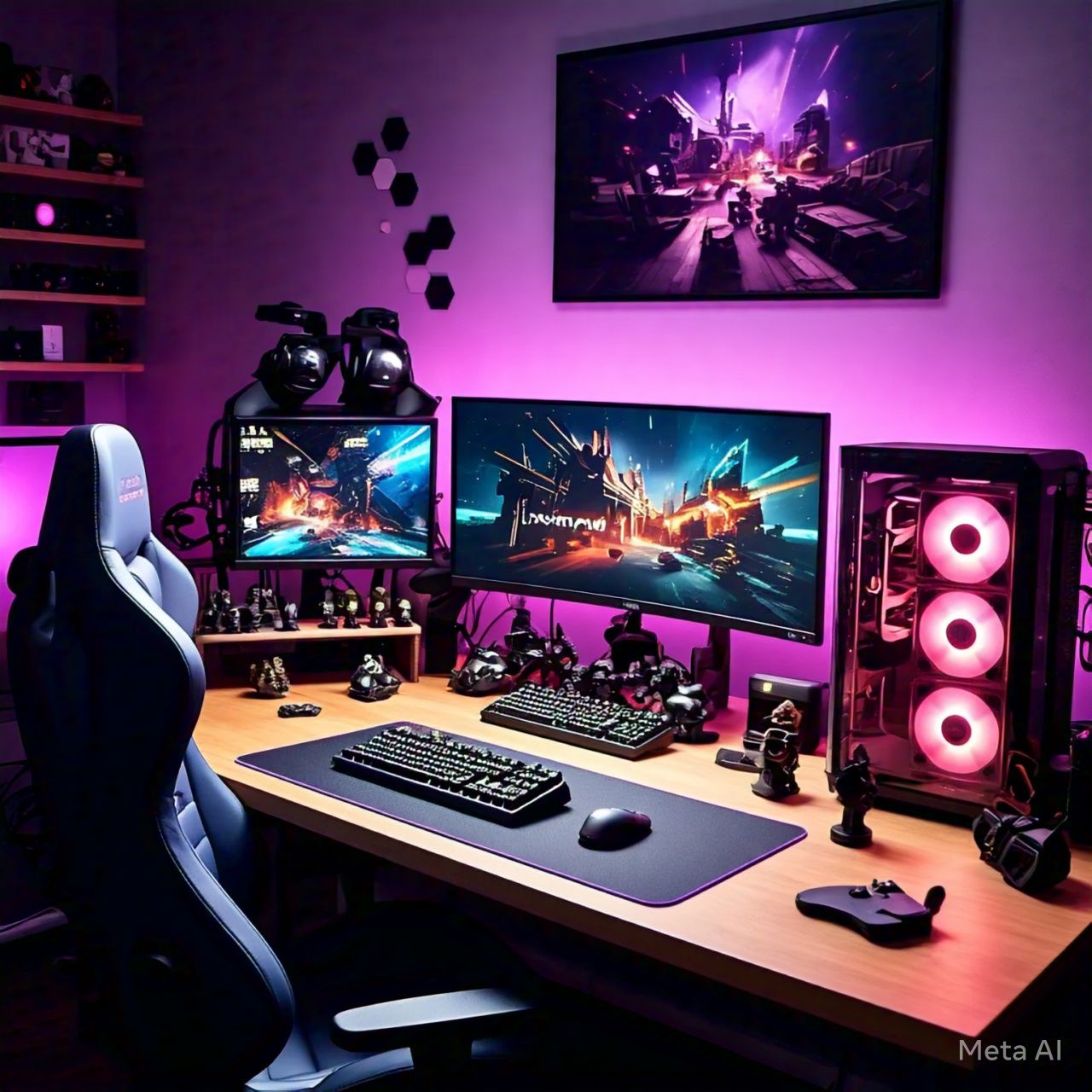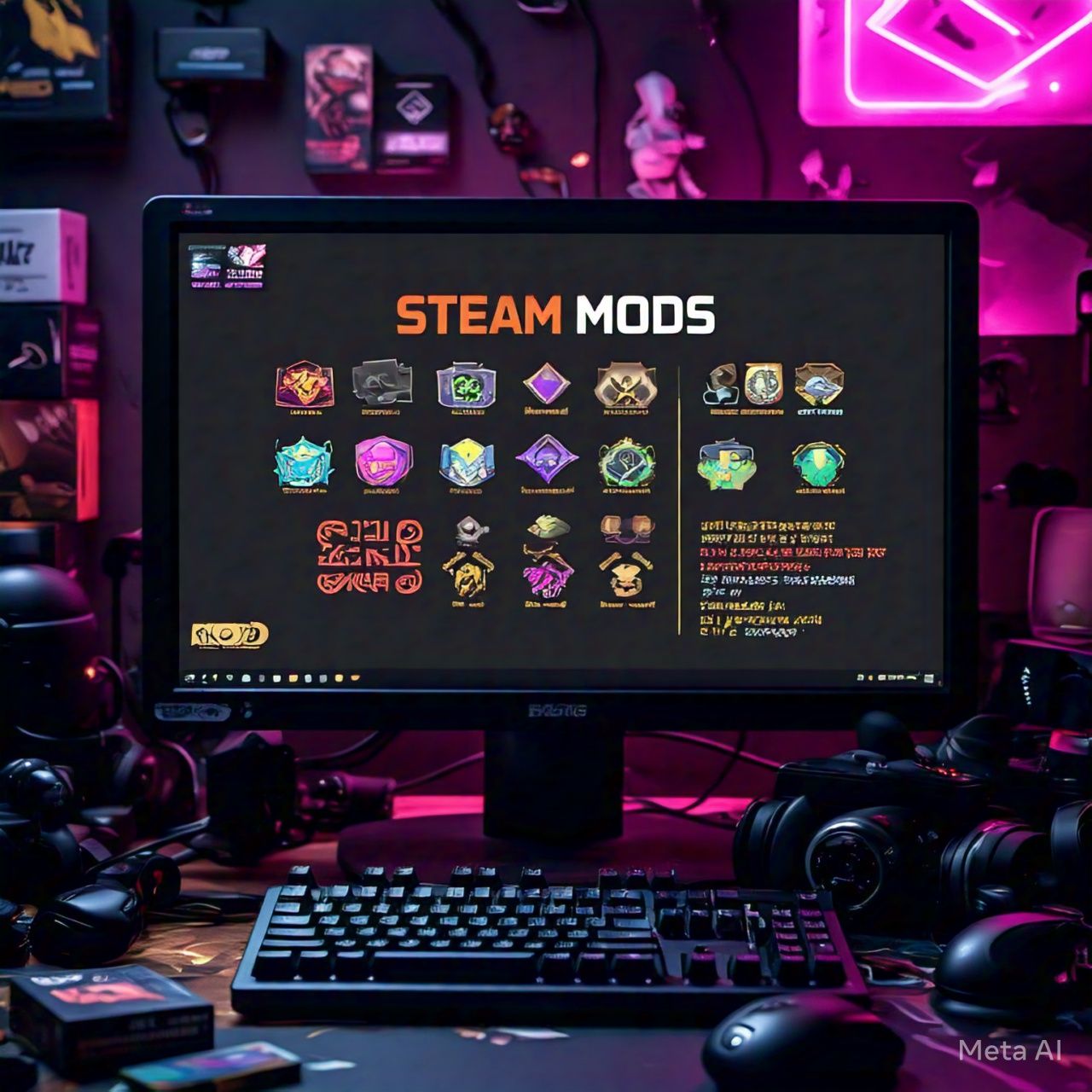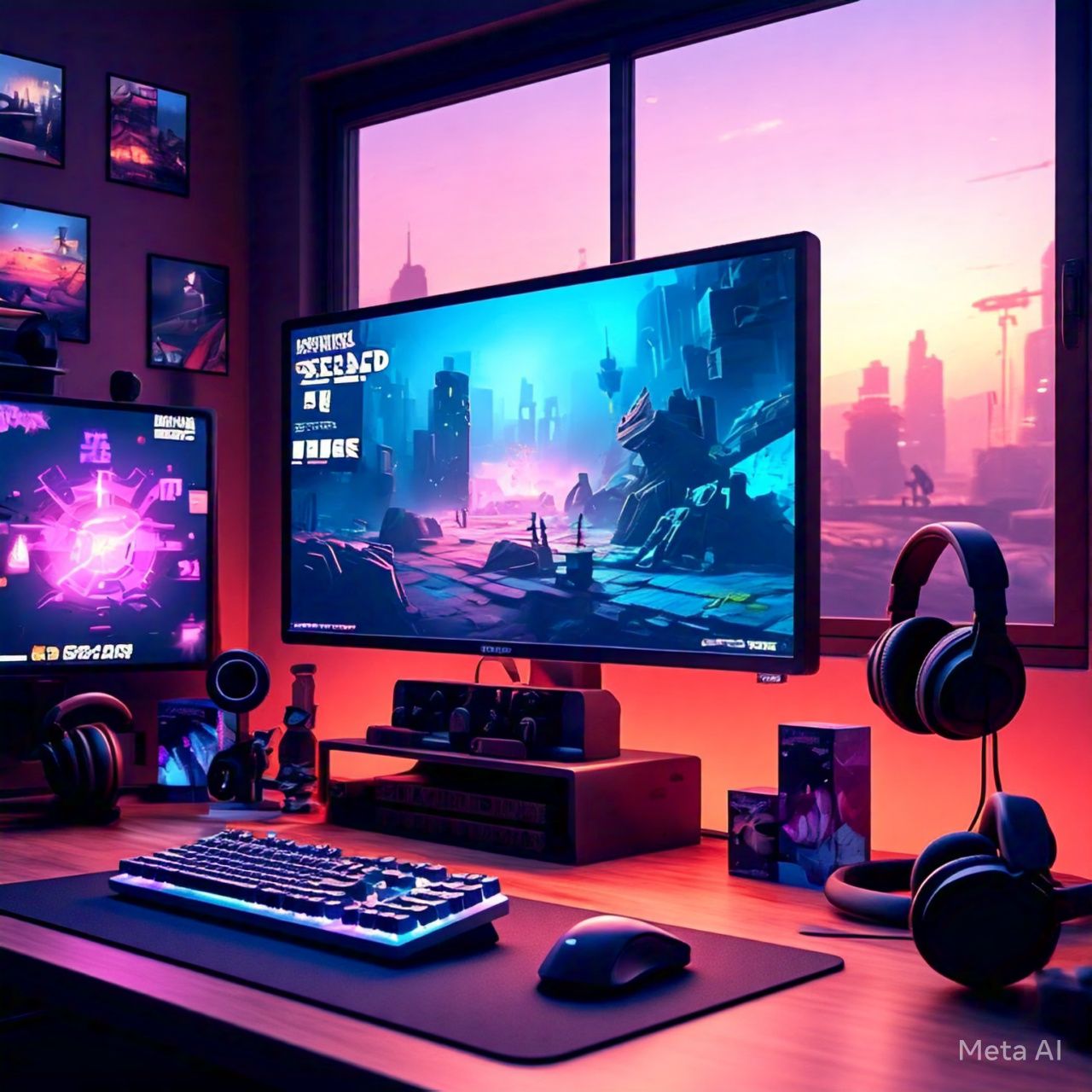Steam Mods: How Custom Mods Are Changing Gaming Experiences
The gaming industry has come a long way since its inception, offering more immersive experiences and deeper narratives than ever before. However, one of the most significant shifts in how players interact with games has come through the rise of mods—user-created content that alters or enhances the base game. Steam, one of the leading platforms for PC gaming, has fostered a massive modding community, allowing players to alter, tweak, and improve their gaming experiences. Custom mods have become a key part of gaming culture, offering personalized content, new gameplay mechanics, and more replayability.
Steam mods have fundamentally changed the way we think about gaming, offering players the chance to deeply personalize their favorite titles. Whether you’re looking to improve visuals, add new content, or fix bugs, mods provide an opportunity to transform a game into something unique.
Thanks to the thriving modding community on Steam, the future of gaming is one of endless customization and creativity, where players are empowered to take control of their gaming experiences and contribute to the ever-expanding world of mods. The ability to modify games is no longer an afterthought—it’s a core part of modern gaming, and it’s clear that the impact of mods will continue to shape the gaming landscape for years to come.
What Are Steam Mods?
Steam mods are user-created modifications that alter the base version of a game on the Steam platform. These mods can range from simple aesthetic changes, like skin and texture alterations, to significant gameplay adjustments, such as new quests, characters, and mechanics. The beauty of mods lies in their ability to customize and personalize a game to fit the individual player’s preferences. By modifying the core files of a game, modders can create entirely new experiences that can be shared with the broader gaming community.
The Steam Workshop is the primary platform for finding and downloading mods. It provides an easy-to-use interface that allows players to browse, install, and manage mods for supported games. While some mods are free, others may be offered for purchase through the Steam store. These mods, however, often include additional content, such as new levels, features, or community-driven expansions, enhancing the gaming experience further.
The Rise of Steam Mods
The rise of modding can be traced back to early PC games, where communities created mods to improve graphics, fix bugs, or add entirely new content. However, with the advent of Steam and platforms like the Steam Workshop, modding became much more accessible and mainstream. The tools required to create mods were made easier to use, and the games themselves became more mod-friendly.
In recent years, some of the most popular games on Steam have been built with modding in mind. Titles like “Skyrim,” “The Witcher 3,” and “Fallout 4” have become modding hubs, with thousands of user-created mods available for download. The growing trend of modding shows that the gaming community is embracing player-driven content and customization in ways that go beyond what game developers initially intended.
How Steam Mods Enhance Gameplay
Mods can alter virtually every aspect of a game, from visuals to gameplay mechanics. Whether you’re looking for a minor tweak or a complete overhaul, mods offer endless possibilities for enhancing your gaming experience. Below are some of the key ways that Steam mods change the way players engage with their favorite games.

1. Customization of Visuals
One of the most common types of mods is visual modifications. These mods enhance the look of a game, either through improved textures, higher resolution models, or completely new visual assets. For instance, players can change the appearance of characters, environments, and weapons, or adjust lighting and weather effects to create a more immersive atmosphere. Visual mods can make older games look like modern titles, breathing new life into them and making them feel more contemporary.
2. New Content and Features
Mods can also add entirely new content to a game. This can range from new quests, characters, and locations to entirely new game modes or mechanics. For example, in games like “Skyrim” or “Grand Theft Auto V,” modders have added new storylines, regions to explore, and even multiplayer functionality. These types of mods extend the longevity of a game by providing players with fresh content long after the original developers have moved on to other projects.
Additionally, modders often create completely new features that enhance the gameplay experience. This could include adding new abilities, weapons, or even altering the game’s core mechanics. Some mods even introduce entirely new systems, such as crafting, combat mechanics, or survival modes, which can significantly alter how a game is played.
3. Fixing Bugs and Improving Performance
Another reason why mods are popular among the gaming community is their ability to fix bugs or improve performance. Many games, especially those with large open worlds, may suffer from glitches, bugs, or performance issues. Modders often create patches or fixes that address these problems, making the game run smoother or fixing issues that have plagued players since launch.
In some cases, mods even go as far as fixing broken quests, improving AI behavior, or restoring missing content. For example, in “The Elder Scrolls V: Skyrim,” modders have created patches to fix issues with quests, NPC behaviors, or even unintended bugs that prevent progress in the game. These types of mods are especially valuable for players who want a more stable experience.
4. Replayability and Game Overhauls
Mods can also dramatically increase the replayability of a game by offering new ways to play. Game overhauls are mods that completely change the way a game is experienced. These can range from smaller tweaks to larger, more drastic changes that completely transform the original game. For example, mods in “Civilization V” have added new civilizations, scenarios, and even entire new game mechanics, changing the gameplay and strategy involved.
In other cases, mods may take a game in a completely different direction. For example, there are mods that turn “Minecraft” into a survival horror game or mods that add turn-based combat to action RPGs. These types of mods provide endless variety and new ways for players to experience their favorite games.
The Community Aspect of Steam Mods
One of the biggest draws of modding is the sense of community it fosters. The modding community is a vibrant and creative space where players can share their creations and give feedback to others. Steam’s Workshop makes it easy for players to upload their mods, interact with others, and contribute to the improvement of existing mods. Many modders start small, working on simple tweaks or additions, but over time, they may go on to create massive content packs or even full game conversions.
The feedback loop between modders and players ensures that mods evolve and improve over time. Players can report bugs, suggest improvements, and provide support for modders, helping to ensure that mods continue to meet the community’s expectations. This collaborative aspect of modding has helped create a thriving ecosystem, where creativity thrives and new ideas are continually tested and refined.
Steam Mods and the Future of Gaming
As gaming continues to evolve, the role of mods will likely continue to grow in importance. The increasing accessibility of modding tools, coupled with the rise of indie game development, means that modders will have even more opportunities to shape the future of gaming. Moreover, as more developers embrace modding as a way to extend the life of their games, we will likely see even more innovative and unique mods being created.
Games such as “The Witcher 3” and “Minecraft” have shown that mods can add an immense amount of value to a game, and this trend is unlikely to change anytime soon. As developers continue to integrate modding into their games and offer mod support from the start, players will have more ways to shape and customize their experiences.
The Importance of Modding Communities
The modding community has grown exponentially over the years, becoming a vital part of the gaming ecosystem. Modders often work for free or as a hobby, dedicating countless hours to improving games and creating new experiences. While some modders seek recognition, others do it out of a passion for the games they love. This sense of community is one of the driving forces behind the growth and success of mods on Steam.
Modding as a Learning Tool for Developers
Interestingly, modding has become a significant learning tool for aspiring game developers. Many indie developers and professionals start their journey in the gaming industry by creating mods. By experimenting with existing games, modders learn the intricacies of game design, coding, and storytelling, which often translates into successful careers in game development. The open nature of modding allows anyone to create something, learn from it, and refine their skills over time.
Some developers even acknowledge the value of mods as a way to foster creativity and innovation. For instance, the “Skyrim” community has created mods that introduce complex storytelling elements and intricate gameplay mechanics, which have inspired some developers to adopt similar ideas in their games. As more developers embrace mods as part of their design philosophy, we could see a stronger relationship between modders and game studios, leading to even more collaborative and innovative content.
Popular Steam Mods That Changed the Game
Several mods on Steam have had a profound impact on the gaming industry. These mods didn’t just improve existing games—they fundamentally changed how players interact with them.

Here are a few notable examples:
1. Skyrim: Special Edition – Unofficial Patch
“Skyrim” is a game that practically defined modding for the modern era. While the game itself was immensely popular, the community-driven mods have taken it to new heights. One of the most popular mods for “Skyrim” is the Unofficial Skyrim Patch. This mod fixes countless bugs that were left unaddressed by the developers, improving the overall experience and making the game more stable. It’s a prime example of how mods can extend the life of a game by addressing issues that players care about.
2. Minecraft: OptiFine
“Minecraft” is another title that has benefited immensely from mods, and OptiFine is one of the most widely used mods. OptiFine enhances the game’s performance and allows players to customize graphics settings for better performance. The mod also adds support for HD textures, allowing players to change how the game looks while still maintaining high frame rates. It’s a great example of how mods can enhance both the aesthetic and technical aspects of a game.
3. The Witcher 3: Wild Hunt – The Witcher 3 HD Reworked Project
“The Witcher 3” is widely regarded as one of the best RPGs of all time, but that doesn’t mean it’s immune to modding. The Witcher 3 HD Reworked Project is a mod that significantly improves the game’s visuals. It enhances textures, lighting, and character models, making the game look even more stunning than before. This mod shows how mods can elevate the visual fidelity of a game, ensuring it remains fresh and appealing even years after its release.
4. Grand Theft Auto V – FiveM
“Grand Theft Auto V” has one of the most dedicated modding communities, and one of its most famous mods is FiveM. FiveM enables players to host custom multiplayer servers that support mods, allowing for a vast array of custom content and game modes. This mod transformed “GTA V” into a platform for entirely new gameplay experiences, including role-playing servers, custom missions, and new vehicles. FiveM has given the “GTA V” community an opportunity to create something entirely unique and has kept the game alive long after its original release.
Modding and Its Influence on Indie Games
Modding has also had a significant impact on the success of indie games. Indie developers can use mods to provide a fresh experience to players without having to constantly release new expansions or updates. Some indie games have built a reputation for being mod-friendly, allowing modders to make meaningful changes that benefit the entire community.
For example, “Stardew Valley,” an indie farming simulator, has seen an outpouring of mods that add new crops, animals, buildings, and even characters. These mods enhance the base game and allow players to enjoy new experiences, increasing the game’s replayability. The success of “Stardew Valley” is largely attributed to its modding potential, which has given the game a long-lasting appeal that goes beyond its original content.
Another example is “Terraria,” an indie sandbox game that has benefited from a vibrant modding community. The modding scene for “Terraria” has added everything from new biomes and bosses to completely new gameplay modes. Mods in “Terraria” have kept the game fresh and engaging, even years after its initial release, providing the developers with new ways to connect with their audience.
Challenges and Controversies in Modding
While modding has brought about many positive changes, it’s not without its challenges and controversies. One of the most significant issues has been the question of intellectual property (IP) and ownership. Game developers and publishers may have concerns about mods infringing on their copyrights, especially when mods add significant amounts of new content. Some companies have been known to take legal action against modders, leading to a conflict between modders and the companies that create the original games.
There’s also the issue of monetization. While many mods are created for free, some developers have attempted to charge for their mods. In 2015, Valve attempted to implement a paid mod system for “Skyrim” through the Steam Workshop, but this move was met with backlash from the community. Many players felt that mods should remain free, and Valve ultimately reversed the decision. However, this controversy has sparked ongoing debates about the ethics of modding and whether creators should be compensated for their work.
Additionally, some games have been criticized for being “mod-friendly” in name only. While developers may say they support mods, they may not always provide the necessary tools, resources, or documentation for modders to create content. This has led to frustration in the modding community, as players and creators alike feel that their contributions are not always supported or appreciated by the developers.
Conclusion: Steam Mods as a Game-Changer
Steam mods have revolutionized the way we experience games. From enhancing visuals and fixing bugs to adding entirely new content and game modes, mods have become an essential part of the gaming landscape. The vibrant and passionate modding community has breathed new life into countless games, extending their shelf life and keeping them relevant long after their initial release.
As the gaming industry continues to evolve, modding will likely remain a central feature of the gaming experience. Mods give players the freedom to shape and customize their games, allowing them to create unique experiences that would not be possible with vanilla gameplay alone. For both developers and players, mods are a powerful tool for creativity, offering endless possibilities for enhancing games and exploring new ideas. Whether you’re a player seeking new content or a modder looking to contribute, Steam mods will continue to be an integral part of the gaming experience for years to come.


